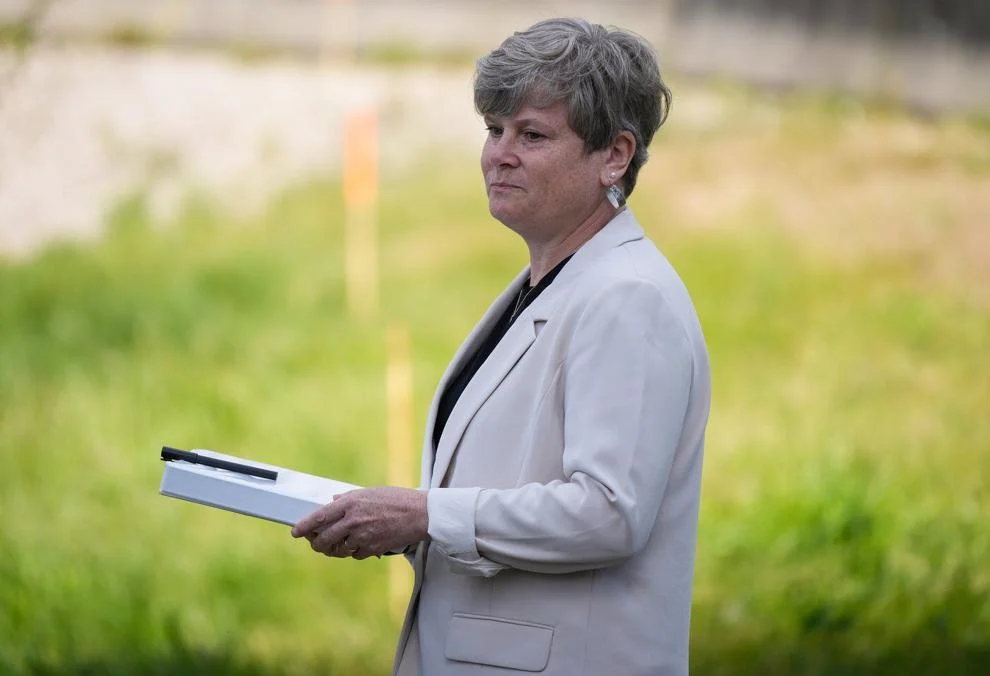The British Columbia government has reversed a controversial decision to cut funding for a rare disease drug, following widespread public backlash. This change came after four members of the provincial Expensive Drugs for Rare Diseases Committee resigned in protest.
Health Minister Josie Osborne announced the reversal on Thursday and apologized to the family of 10-year-old Charleigh Pollock the following day. Pollock is the only known person in B.C. with Batten disease, a rare and incurable condition that causes seizures, loss of motor functions, and blindness.
The medication, Brineura, helps slow the disease’s progression and costs nearly $1 million per year. Last month, the province stopped covering it, citing expert advice that the drug was no longer effective in Charleigh’s case.
That decision caused outrage. Supporters launched an online campaign to help the family afford the treatment. Critics, including politicians from across party lines, accused the government of creating a “GoFundMe healthcare system.” They demanded a more compassionate and fair approach.
On Thursday, Osborne personally informed Charleigh’s mother, Jori Fales, that the funding would be restored. The decision came after a group of U.S. medical experts sent a letter urging the province to continue funding. They strongly disagreed with the initial recommendation to stop support and called for a review of the criteria used.
Osborne admitted the situation showed deep divisions among medical professionals. She said that no child should suffer due to conflicting expert opinions. During a press conference Friday, she said she felt deep regret for the stress caused to the family and apologized directly to Charleigh’s mother.
Fales posted an emotional video online after the call, saying she was grateful the “nightmare” had ended. She thanked the public for their support and said she was overwhelmed by the kindness shown.
The Health Ministry later confirmed that four members of the drug committee had resigned. Their names were not released, as the government protects the identities of those serving on the panel. The ministry would not confirm whether the resignations were directly tied to the funding reversal, but stated they happened after the minister’s announcement.
There are 50 members on the committee, which provides advice on high-cost drug coverage decisions in the province.
The case sparked broader questions about how healthcare decisions are made. Critics argued that elected officials should step in when bureaucratic processes fail to show compassion. One mayor questioned whether governments had lost sight of their duty to protect vulnerable people.
Osborne acknowledged these concerns and said she understood why British Columbians were upset. She said the outpouring of support for Charleigh showed the province’s deep sense of care and solidarity.
She also emphasized the need for better systems. The minister announced that the Therapeutics Initiative, an independent research group at the University of B.C., would conduct a full review of Brineura. This will help determine whether the current funding criteria need to change.
Osborne also called on BioMarin Pharmaceuticals, the maker of Brineura, to seek a formal review by the Canadian Drug Agency. She urged the federal government to fast-track a national strategy for rare disease drugs. This strategy, when implemented, would help ensure equal access across provinces and prevent similar situations in the future.
Brennan Day, an opposition health critic, welcomed the reversal. He called it a victory for Charleigh and everyone who spoke up. However, he questioned why it took so much pressure to get to this point. He said the decision should have been made from compassion, not from public outrage.
The case has become a turning point in how rare drug decisions are handled in the province. Charleigh’s story has brought national attention to the gaps in care and the urgent need for a more humane, transparent process.

